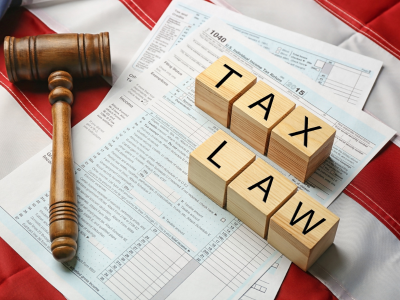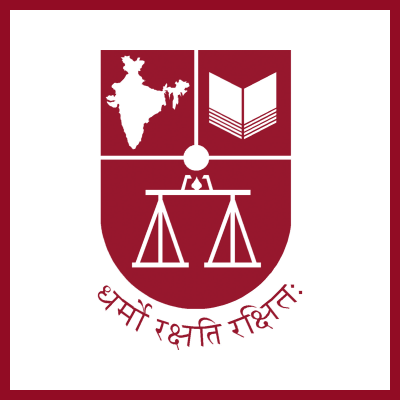Postgraduate Diploma inTaxation Law(PGDTL)
Overview
The introduction of the Postgraduate Diploma Programme in Taxation Law (PGDTL) is designed to offer comprehensive insight into the field of taxation. It encompasses three pivotal courses that together provide an understanding of taxation laws and policies from both domestic and international perspectives. Through this programme, candidates will gain a deep and practical understanding of both the theoretical and practical aspects of taxation, making them well-prepared to address contemporary challenges in taxation law and practice.
Programme Highlights:
- Gain foundational knowledge in the area of Direct and Indirect tax law in India
- Understand the multifaceted aspects of taxation, including its political, economic, and legal dimensions.
- Assess the legal and economic implications of various tax policies and their alignment with constitutional mandates.
- Gain conceptual understanding of the key concepts of the Income Tax Act, 1961
- Learn to discern the direct tax implications of transactions.
- Equip yourself to read tax treaty provisions and identify cross-border implications of certain key issues.
- Understand the compliance obligations of taxable persons.
Courses
Course 1: Introduction to Law & Legal Systems
This paper introduces the student to legal thinking and reasoning, and to legal systems, with a particular focus on Indian law and the Indian legal system. Those students who are from a non-law background would find this course particularly helpful.
Course 2: Fundamentals of Taxation
This paper consists of the following modules:
Module 1: Introduction to Taxation
Module 2: Constitutional Foundations of Taxation in India
Module 3: Fiscal Federalism and the Distribution of Taxing Power in India
Module 4: Design, Implementation and Interpretation of Tax Statutes in India
Course 3: Principles of Direct Taxation
This paper consists of the following modules:
Module 1: Introduction to Income Tax Act, 1961
Module 2: Salary Income
Module 3: Income from House Property
Module 4: Profits and Gains from Business and Profession
Module 5: Capital Gains and Income from Other Sources
Module 6: International Aspects
Course 4: Principles of Indirect Taxation
This paper consists of the following modules:
Module 1: Introduction to GST
Module 2: Computation of GST liability – Key Concepts
Module 3: Input Tax Credit Mechanism
Module 4: GST Assessment and Litigation
Module 5: Overview of Customs Duty
Faculty

Registrar

Assistant Professor of Law

Assistant Professor of Law
Fee
For Indian Nationals
| Regular Fees | |
| Application Fee | Rs. 2,000 |
| Admission Fee | Rs. 3,000 |
| Course Fee | Rs. 48,800 |
| Examination Fee | Rs. 3,200 |
| Total fees | Rs. 57,000 |
| Other fees | |
| Admission late fee | Rs. 500 |
| Continuation fee | Rs. 3,500 per year |
| Extension fee | Rs. 6,000 per year |
| Re-evaluation fees | Rs. 900 per paper |
For Foreign Nationals
| Regular fees | |
| Application Fee | Rs. 2,000 |
| Admission Fee | Rs. 3,000 |
| Course Fee | Rs. 1,44,800 |
| Examination Fee | Rs. 3,200 |
| Total fees | Rs. 1,53,000 |
Apply
Please note the following information regarding eligibility and the mode of applying for this programme.
Eligibility
The minimum eligibility for applying for this programme is a graduate degree (in law or other fields) from a recognized university.
Students with a degree certificate or its equivalent from any UGC-recognized university, Association of Indian Universities, CA, CS, ICWA, Open University/distance learning can apply. There shall be no restriction as to age, nationality, gender or employment status.
Important Dates
Admission Closed.
Classes are slated to begin by September 2025.
For admission-related queries, please write to admissions.pace@nls.ac.in
FAQs
These are some commonly asked questions about this programme. For general questions about the NLSIU Distance Progamme, please visit the General FAQs page.
How many years does a student have to complete a programme?
Students of the Diploma programmes can complete their programme in up to five years from the year of their enrolment.
Students are required to pay the prescribed fee at the time of admission. If a student has to continue the programme beyond one academic year because of non-fulfilment of the prescribed requirements for the award of the diploma, they will be permitted to continue for the subsequent two academic years by paying a continuation fee as prescribed for each year.
After a period of 3 years if the student is unable to clear the programme they may be given an extension of another 2 years by paying Rs. 5000 per year for the subsequent two years as extension fee, provided they have cleared 2 out of the 4 courses in a Diploma programme. At the end of the fifth academic year, if the student is unable to complete the requirements for the award of the diploma, the admission stands automatically cancelled.
What if the candidate does not complete the course in 3 years?
If the candidate does not pass or complete the course, his enrollment ceases. He will have to register afresh by following the usual procedures prescribed for first admission. His performance at the earlier exams is not carried forward. He will have to redo the entire academic exercise prescribed, in the syllabus.
What is the scheme of Assessment?
Every course shall have a combination of formative and summative assessments. This will aid in regular learning and understanding concepts better. Please note the following details regarding the upcoming assessments: Assessment Details:
| Sl. No | Assessment Type | Assessment Pattern | Marks Allotment | Mode | Enrollment Fee |
| 1. | Formative I | MCQs | 20 Marks | Online | INR. 200/- |
| 2. | Formative II | MCQs | 30 Marks | Online | INR. 200/- |
| 3. | Summative | Subjective | 50 Marks | In-person | INR. 300/- |
What is Grading Mechanism?
To successfully complete a programme, a student must take all three assessments (Formative I + Formative II + Summative) and obtain a cumulative grade point average (CGPA) of three and above out of seven. An aggregate of your performance will count towards the final grade in each course.
| Grade | Grade Description | Grade Point | Percentage of Marks |
| O | Meets the highest standards for the assignment or course | 7 | 70% and above |
| A+ | Meets very high standards for the assignment of course | 6 | 65% to 69% |
| A | Meets high standards for the assignment or course | 5 | 60% to 64% |
| B+ | Meets most of standards for the assignment or course | 4 | 55% to 59% |
| B | Meets basic standards for the assignment or course | 3 | 50% to 54% |
| C+ | While acceptable, falls short of meeting basic standards in several ways | 2 | 45% to 49% |
| C | Lowest passing grade | 1 | 40% to 44% |
| F | Failing, very poor performance | 0 | Less than 40% |

Admission Status
CLOSED
Duration
1 Year
Number of Courses
4
Course Fee (Indian Nationals)
Rs. 57,000/-
Course Fee (Foreign Nationals)
Rs. 1,53,000/-
